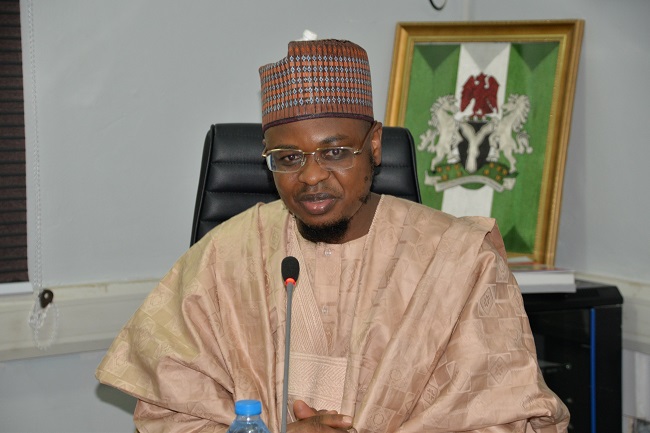With the impact of COVID-19 on education sector, the Federal Government says it is considering a new National Policy on zero-rating on educational websites to allow Nigerians consume contents without attracting charges to their data plans.
The Minister of Communications and Digital Economy, Dr Isa Ali-Pantami, made the disclosure while delivering his keynote address at a Webinar organised by Lead Inspire Network with the theme: ‘Enhancing Virtual Learning and the Challenges of Internet Penetration in Nigeria’.
Represented by a director at the National Information Technology Development Agency, NITDA, Dr Usman Gambo-Abdullahi, the minister said the policy would contain appropriate incentives for mobile network operators and internet service providers.
According to the minister, sufficient access to the internet is essential for the development of an information society, adding that the government was working towards increasing the broadband penetration across the country.
“Currently, broadband penetration stands at 40.18 percent and the plan is to make it 70 percent by 2025. This is the target we set for ourselves in the Nigerian National Broadband Plan.
“This will be of great benefits to the education sector. We would focus more on enabling appropriate contents, infrastructure, capabilities for learning and teaching,” he said.
While assuring that the ministry would deepen broadband penetration through creation of access to public internet service, the minister acknowledged that agencies under his supervision such as NITDA, NCC/USPF have made giant strides in that regard.
“We have been able to establish Digital Centres, Capacity Training Centres, e-Accessibility Centres, School Knowledge Centres, e-Libraries and ICT Hubs and Innovation Parks across the country.
“In just one year, we have deployed over 200 of these across the country. These centres mostly situated in rural areas are equipped with at least 25 computers, backup power supply and free internet service.
“In addition to providing free internet services, the centres also serve as innovation hubs and learning centres for the local community,” the minister said.
The minister said that NITDA had issued Framework and Guidelines for Public Internet Access to regulate most of the approaches government is considering to deepen internet penetration and bridge the digital divide.
Also speaking, the Executive Vice Chairman, Nigerian Communications Commission, NCC, Prof. Garba Danbatta, stated that the pandemic had shifted education to a new level that requires new paradigm.
Represented by a Director in the Commission, Dr Henry Nkemadu, the NCC Boss lamented that broadband penetration is faced with challenges such as high cost of Right of Way, multiple taxation, operating expenses and economic downturn.
He, however, disclosed that the minister was working towards addressing some of the bottlenecks.
Earlier, one of the organisers of the webinar and co-founder of Lead Inspire Network, Sope Afolayan, said the event was put together to further a discussion on how to provide equal access to children of the ‘have’ and ‘have not’.
According to Mr Afolayan, the discourse was also aimed at redirecting the thinking of policy makers on the need to see acquisition of education beyond four walls of the classroom.






